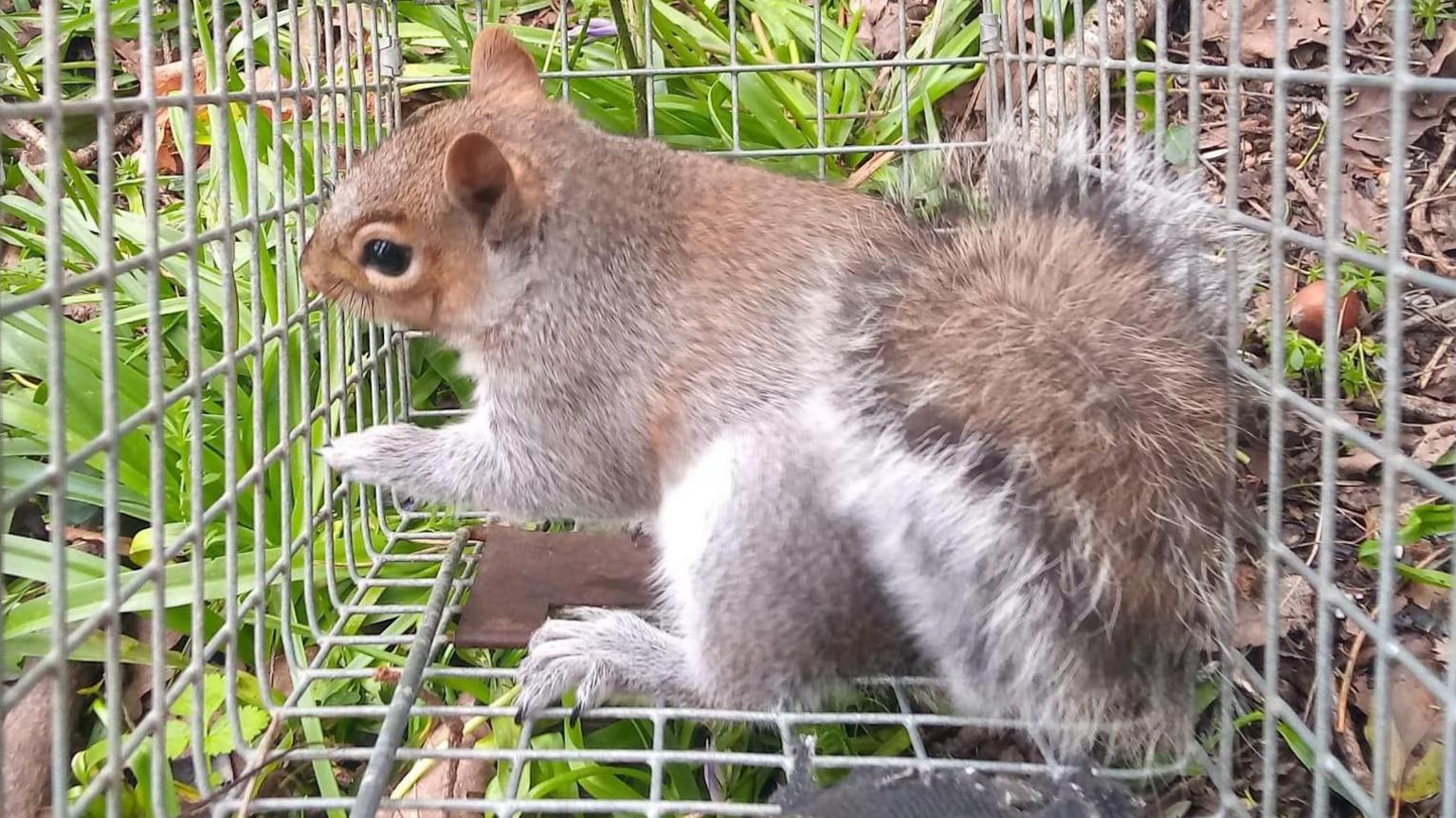'I've killed 300 squirrels in four years'
Northumberland red squirrel survival 'down to four pensioners'
- Published
Ian Glendinning served 32 years as a police officer but, these days, he is targeting a very different sort of offender.
This one has a big, grey bushy tail and, for the last century, has moved inexorably north across England, helping to wipe out its smaller red cousin in the process.
But the grey squirrel has met a determined enemy in Mr Glendinning and a small group of pensioners in a remote corner of Northumberland.
"I've probably killed about 300 in the last four years," he says.
"I take no pleasure whatsoever in doing it but it's a choice. We can have reds or we have greys - we can't have both."
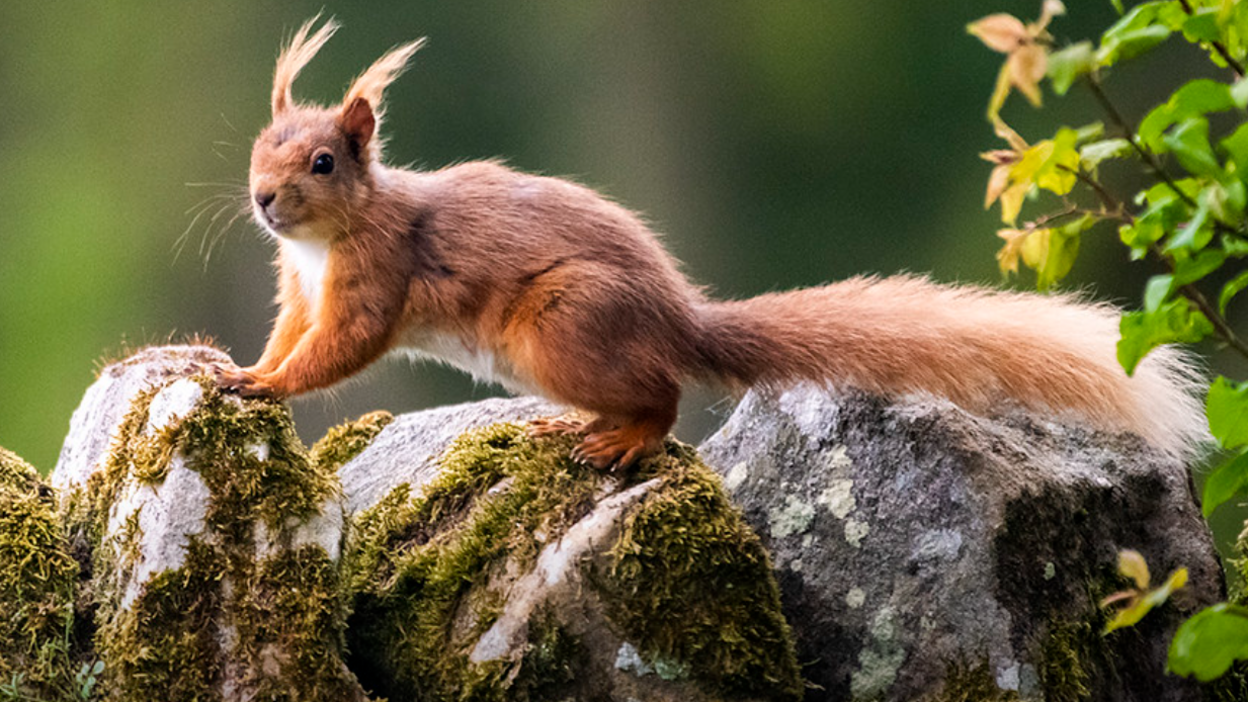
Red squirrels in England are mostly found in Northumberland and Cumbria
Mr Glendinning chairs Northern Red Squirrels, an organisation made up of groups trying to defend the few pockets of reds left in the region, mostly in Cumbria and Northumberland.
He also heads the Coquetdale Squirrel Group which watches over around 20,000 acres of land near his home in the Northumberland National Park.
"It began in about 2019 when I saw more and more red squirrels in my garden but I soon realised it was because they were being pushed out from nearby woodlands by the arriving greys," he says.
"I thought something has to be done."
He leads a group of pensioners who have installed specialist traps that instantly alert them, via email and text message, whenever they are sprung.
This means the grey is only in the trap a short time before it is shot or killed by "cranial despatch", a sharp blow to the head which works instantaneously.
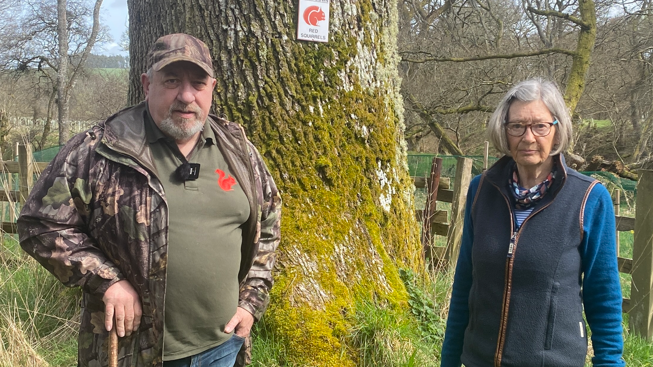
The Coquetdale Squirrel Group say they are determined to save the red squirrel
Originally from North America, the larger and more aggressive grey squirrel is classified as a invasive non-native species, external and it is not illegal to kill them, external.
It carries - but is not affected by - a pox which causes red squirrels to die slowly and painfully.
"The majority of people who think what we do is cruel have never seen a red squirrel die from the pox, over two weeks," Mr Glendinning says.
"It's just a horrific death."
Grey squirrels not only threaten reds they also cause damage to woodlands.
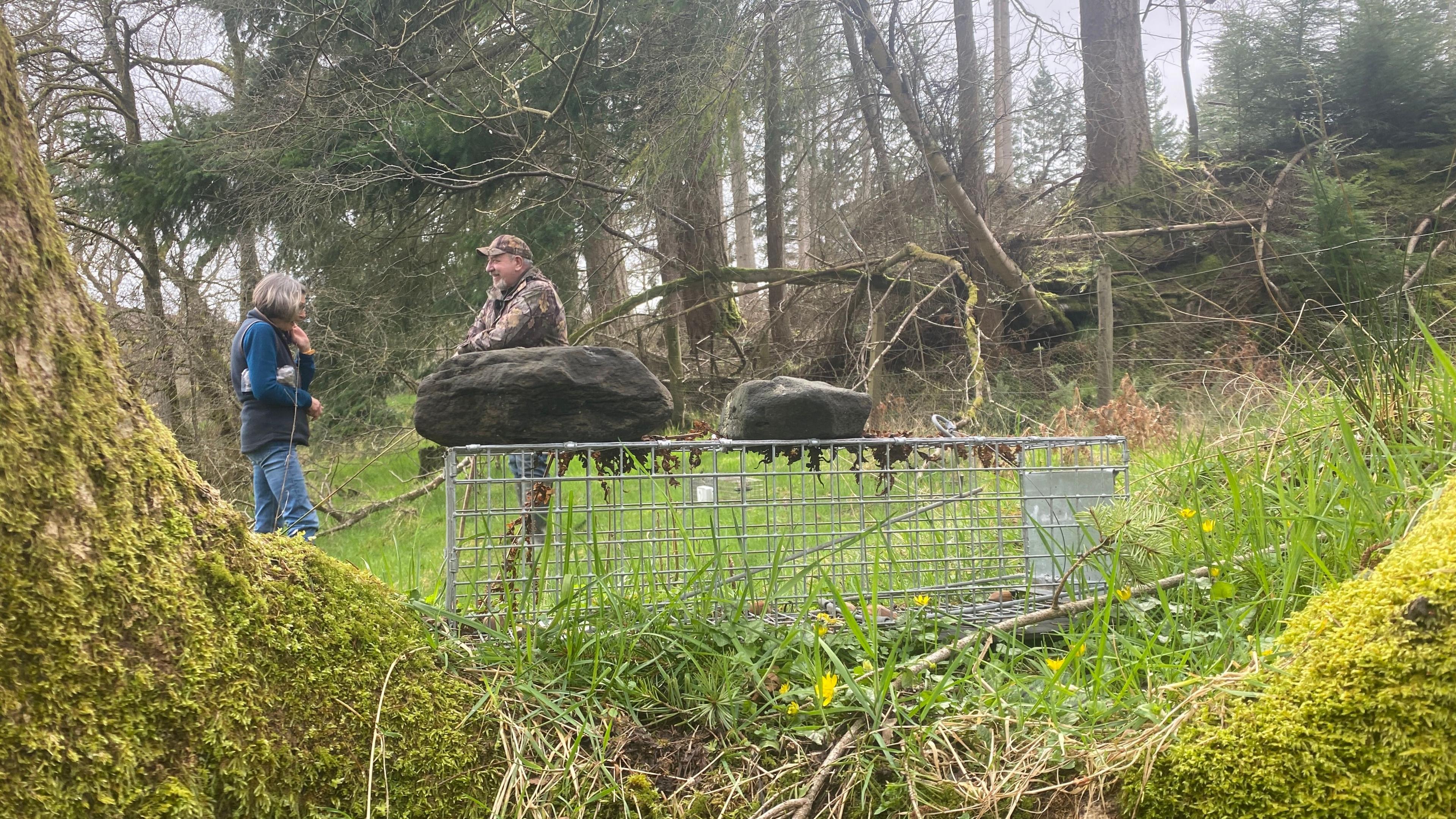
Grey squirrels are caught in cages which alert the group as soon as they are sprung
The financial cost of them stripping bark from trees is estimated at £37m a year in England and Wales alone. , external
Most conservation organisations operating in Northumberland and Cumbria either cull grey squirrels themselves or allow others to do so on their land.
But the charity Animal Aid is opposed, saying there is no excuse to kill one animal to boost numbers of another.
Campaign manager Fiona Pereira calls the cull of grey squirrels "indefensible".
"There are still healthy numbers of reds in mainland Europe – which makes the motivation for killing the greys in the UK even more unjustified," she says.
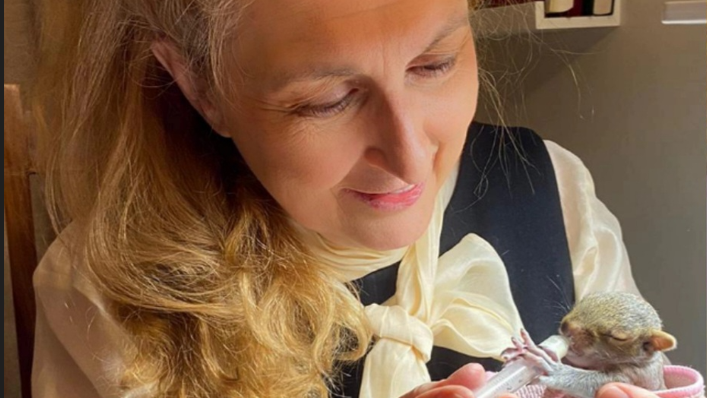
Natalia Doran, who runs Urban Squirrels in London, believes taking the lives of greys to save the reds is wrong
Natalia Doran lives in London and runs the charitable company, Urban Squirrels. She takes in and cares for injured grey squirrels but, because it is illegal to release them, she keeps them at home.
She now has 15 who live in two bedrooms and in aviaries in the garden and says killing grey squirrels is “not the same as removing weeds”.
"There’s this narrative of alien bad/native good but another species which is not a native one might end up being a better fit for the present day British habitat," she says.
"It is nice to have red squirrels but not if we have to kill other ones."
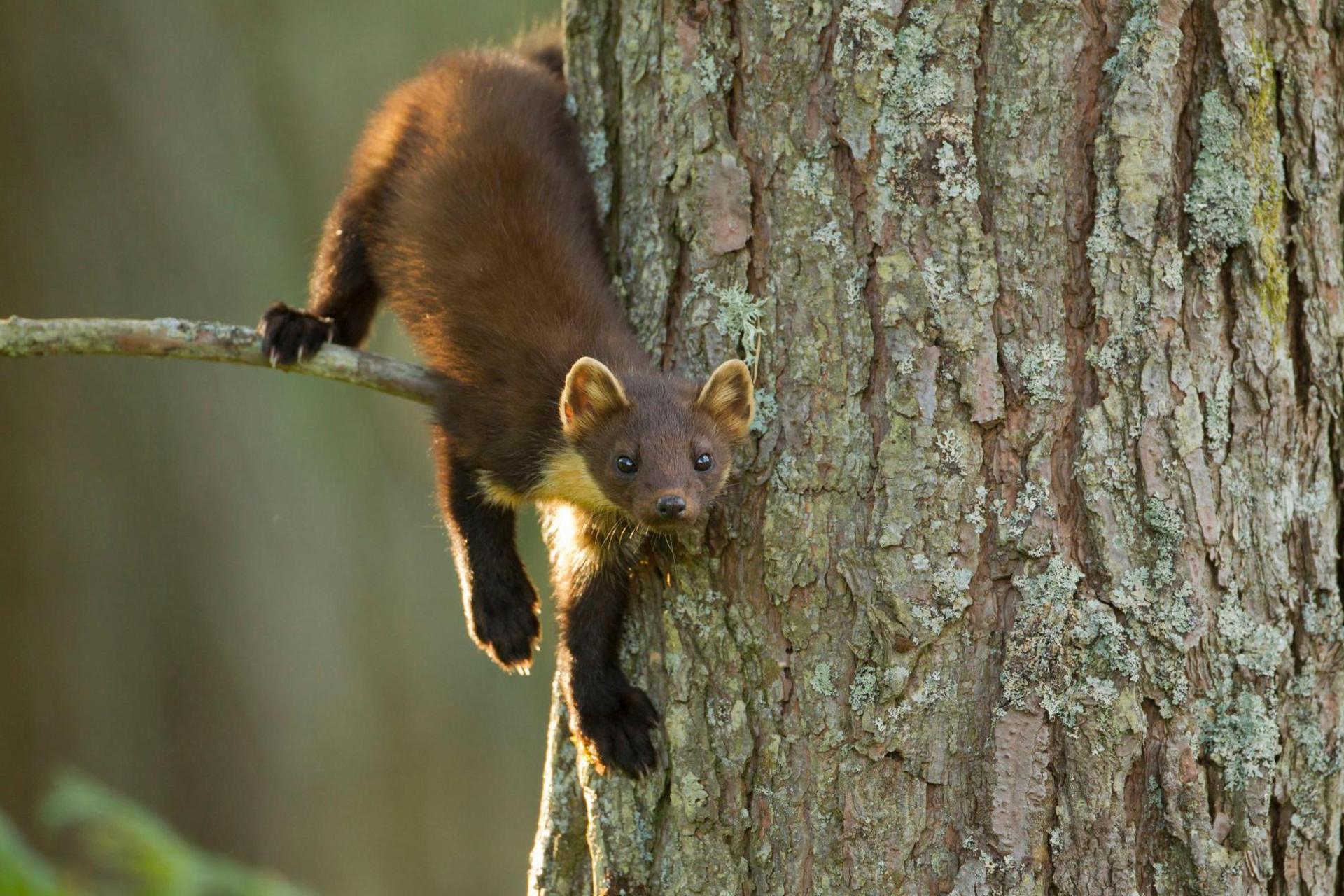
The reintroduction of pine martens in parts of the UK may help stabilise the population of red squirrels
A natural predator, or science, may soon provide a more acceptable solution for those opposed to culling.
Conservation efforts have seen the pine marten gain a foothold in southern Britain and in Northumberland's Kielder Forest.
They predate on all squirrels but red squirrels, being smaller and quicker, are more likely to evade them.
There is emerging evidence from Scotland and Northern Ireland that pine martens are having a positive impact on red squirrel populations.
There is also hope that research into gene editing, external as well as targeted oral contraception, external could limit grey populations.
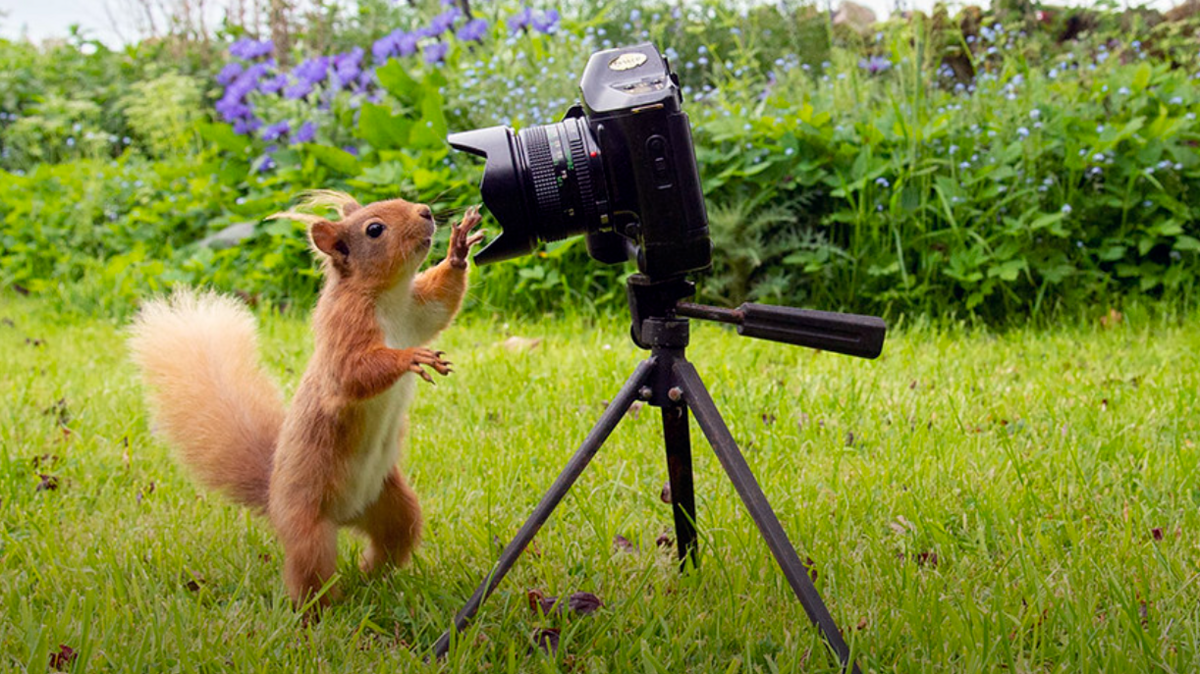
King Charles is known to love red squirrels and is patron of the Red Squirrel Survival Trust
But, for Mr Glendinning, that is all too much in the future to help the red squirrels that play in his garden.
"They are still here - mostly because of four pensioners," he says.
"But, if we don't do what we're doing, in just a few years there will be no red squirrels in Northumberland.
"They're our native species, they have been here since the Ice Age and, if we don't stick up for them, who's going to?"
Follow BBC North East on X (formerly Twitter), external, Facebook, external and Instagram, external. Send your story ideas to northeastandcumbria@bbc.co.uk.
More stories from BBC North East and Cumbria
- Published11 July 2022
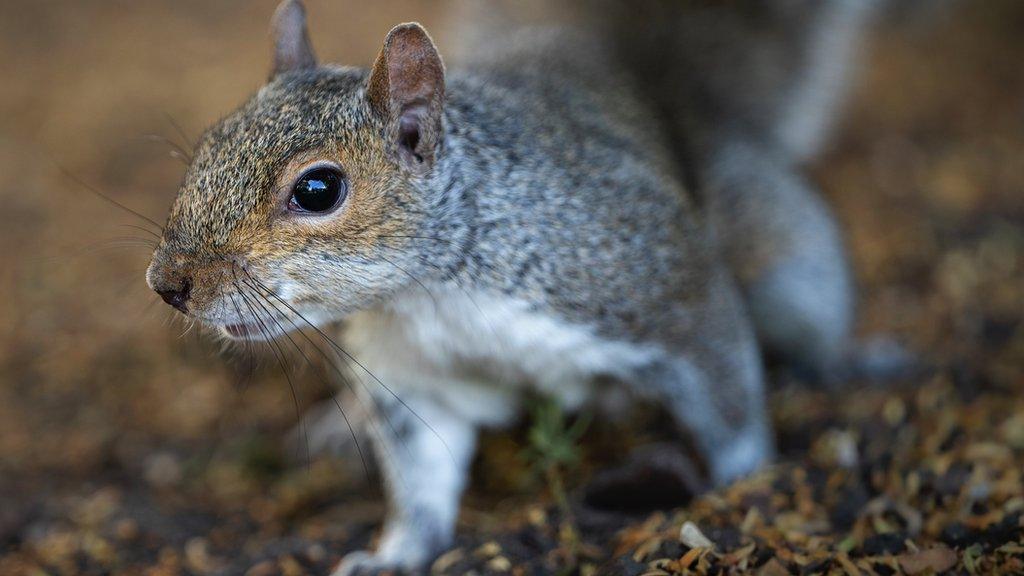
- Published31 May 2023
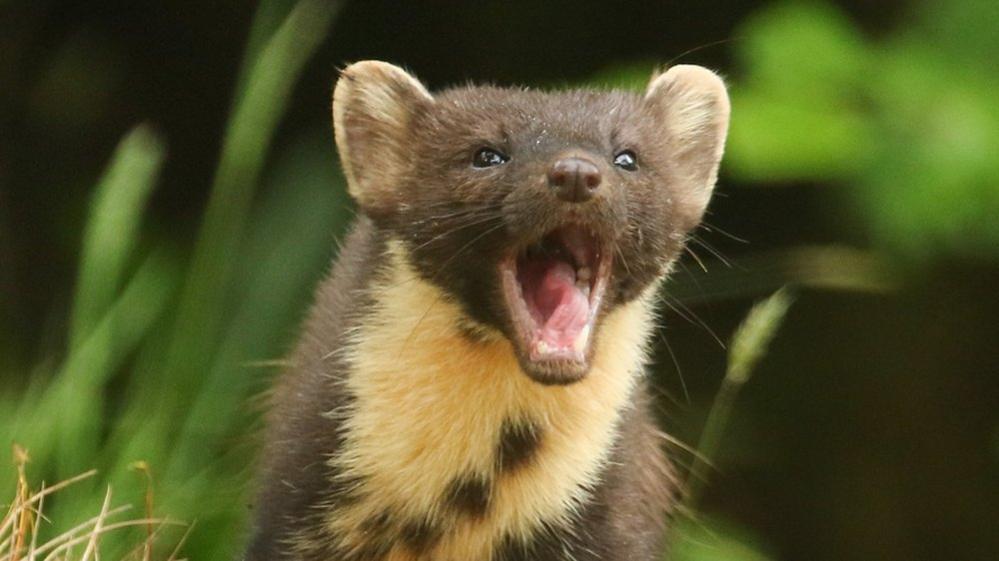
- Published16 March 2024
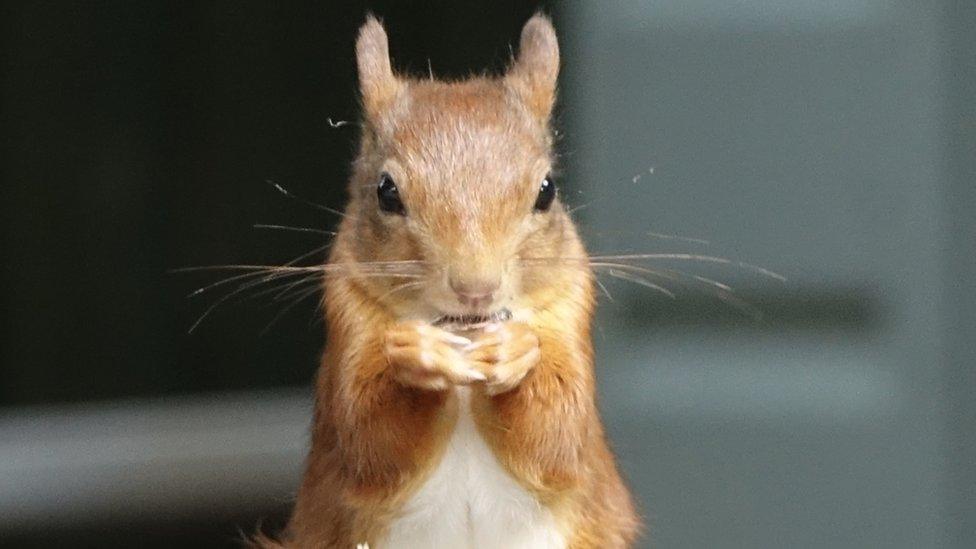
- Published6 April 2024
